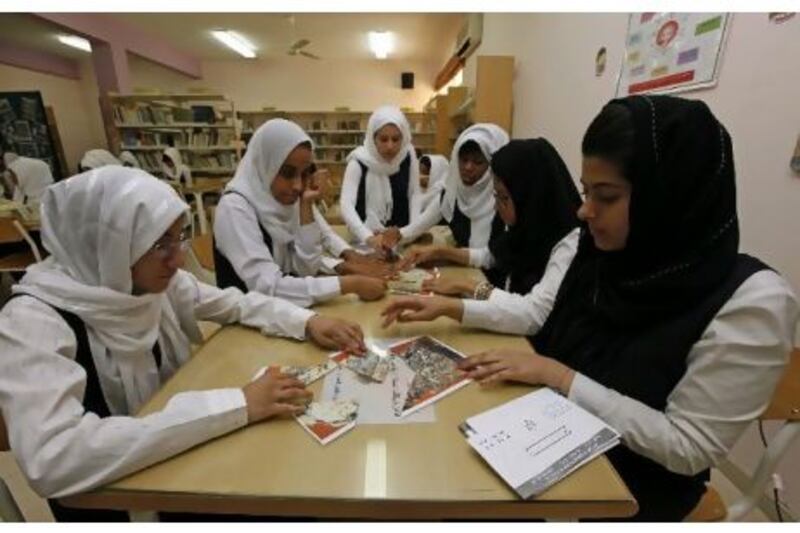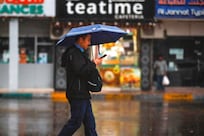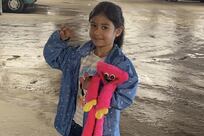DUBAI // Sondos Dahduli, 15, stood before her peers at Umm Suqeim school yesterday and gave them a rundown of the harmful substances in cigarettes, and the effects they can have on a person's health.
Her fellow Grade 9 pupils listened quietly as she described the effects of second-hand smoke.
"We always think that the person who smokes is the only one who gets harmed, but we never think about the people who are around that person," said Sondos, a Saudi national.
Sondos and her classmate, Abrar Salim, 14, a UAE national, showed the class images of a healthy and unhealthy lung, as well as some of the diseases associated with the habit such as throat cancer.
"Look at the image of this kid who dresses like his dad because he wants to be just like him, and also pretends to smoke," Abrar said. "We all know that the father is a role model of the family, so if one person smokes, then the whole family is affected."
This peer-led training workshop is an initiative by the Department of Public Health and Safety within the Dubai Health Authority (DHA) and the Ministry of Education.
The programme's goal is to use the positive influence students can have on each other to communicate the ill effects of smoking.
The teenage role models at this public school urged classmates to think about advertising campaigns that appeal to a young person's psyche with images of a sportsman or model with a cigarette in hand.
"They use images of beautiful girls and models to deceive us into thinking that if we were to smoke, we would slim down or look like that," Sondos cautioned.
Dr Ziad Najjar, a senior public health specialist in the policy and strategy sector of the Department of Public Health and Safety, said the pilot project that started with Umm Suqeim School for girls and Al Shafei school for boys will continue for until the end of the school year.
It will be launched officially across 20 private and public schools in September.
"We will have 10 private and 10 public schools and will train 100 peer leaders, 50 male and 50 female," said Dr Najjar, who is supervising the project.
"We conducted qualitative research and found that when we asked kids what their main source of information was and the number one answer was their peers."
The health policy and strategy sector developed a Peer to Peer Education Guide on Tobacco Control, in Arabic and English.
Dr Najjar said the age of initiation or experimentation tended to be about 13, which was why the DHA was targeting students at that age.
In five three-hour sessions, student leaders are taught communication, presentation and some life skills such as decision-making and resisting peer pressure.
"An important skill is resisting peer pressure because at this age there is a need to belong," Dr Najjar said.
One student, who asked not to be named, said she experienced peer pressure first-hand and tried smoking when she was out at a park with her friends.
"I was out with my friends at a park and they had cigarettes with them," she said. "I didn't want to try one, but then everyone was doing it so I took a puff but did not like it."
Another student said she tried smoking when her grandfather stepped out of the room, leaving behind a lit cigarette.
"I would not try it again, especially after seeing what it does to our health," she said.
Dr Najjar said a focus group would analyse the programme's success.
[ balqabbani@thenational.ae ]






